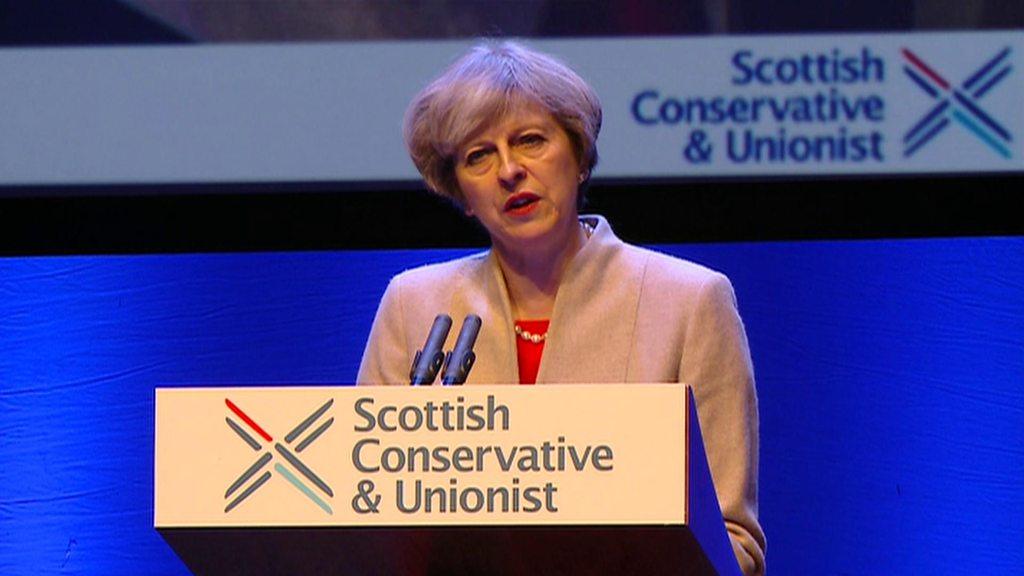Scottish independence: Will there be another referendum?
- Published
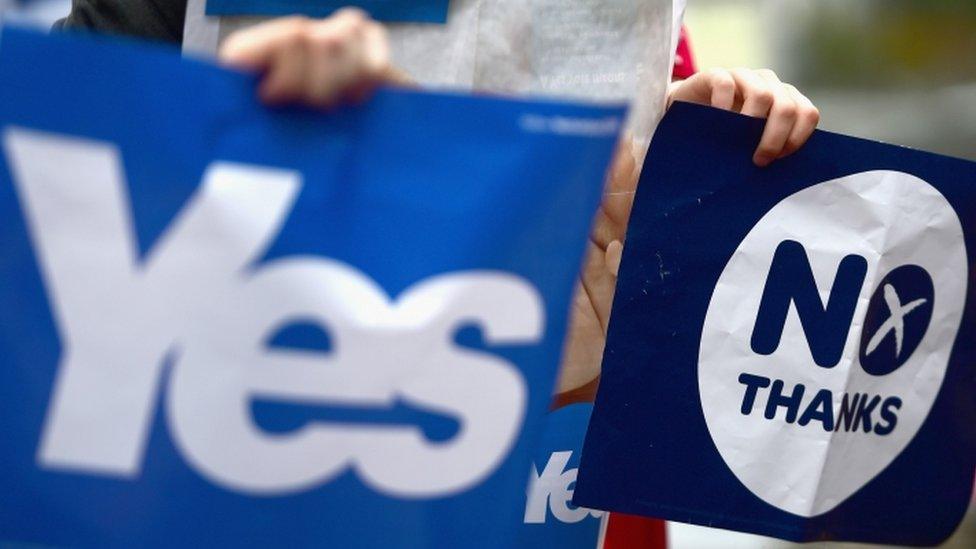
Scotland voted to stay in the UK by 55% to 45% in the 2014 independence referendum
The morning after the EU referendum - before she had even been to bed - Scotland's First Minister Nicola Sturgeon said she thought another independence referendum was "highly likely".
Since then she has upgraded that prediction several times from "more likely" to "almost necessary".
Yet some people think she won't dare call for another vote while the opinion polls continue to suggest a majority of the Scottish electorate still does not support independence.
The polls are not what matters, according to Duncan Hamilton, a former SNP MSP and advisor to Alex Salmond during the 2014 independence referendum campaign.
Democratic wishes
"I think we are beyond the stage of the opinion polls dictating whether or not there will be a referendum", he says.
"I think Nicola Sturgeon would find it difficult ultimately to justify not putting to the people the option of having an independent Scotland as opposed to being taken out on the current hard Tory Brexit terms."
The SNP argue that this is about Scotland democratic wishes being ignored.
Scotland voted by 62% to 38% to remain inside the EU. But the Scottish government claim that their demands for a bespoke Brexit deal for Scotland are being ignored by Westminster. Scotland isn't getting what it voted for, they say.
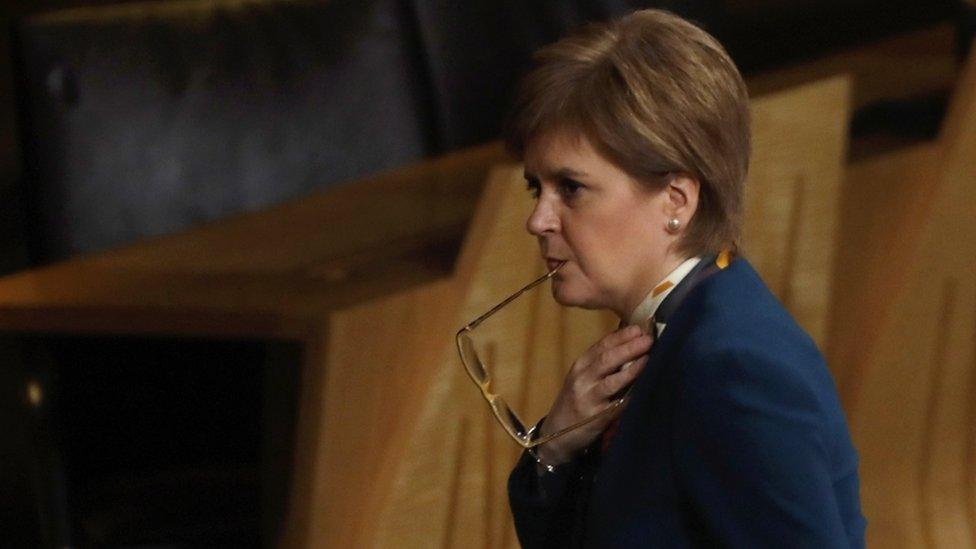
Defeat in a second referendum could have a high personal cost for Nicola Sturgeon, and set the independence movement back a generation
That argument about a democratic deficit is very reminiscent of the political battles of the 1980s that led to the creation of the Scottish Parliament.
That could resonate with voters in Scotland now according to Val McDermid, a best selling author, and a Yes voter.
She says: "The Scots.. we can be a bit difficult. There's a great Scots word, 'thrawn', and it means essentially taking up an adversarial position because we can.
"I think for a lot of people the EU thing was a close call. It wasn't that they were passionate about the EU, but they thought on balance that we were better in than out.
"Then, when the rest of the UK told us we were going, there was a certain sort of 'wait a minute, I've suddenly become a lot more passionate about the EU, this is really important to me'."
The vote to leave the EU may well provide the SNP with the justification for holding another independence referendum. But they will have to be careful not to tie the campaign too closely to EU membership.
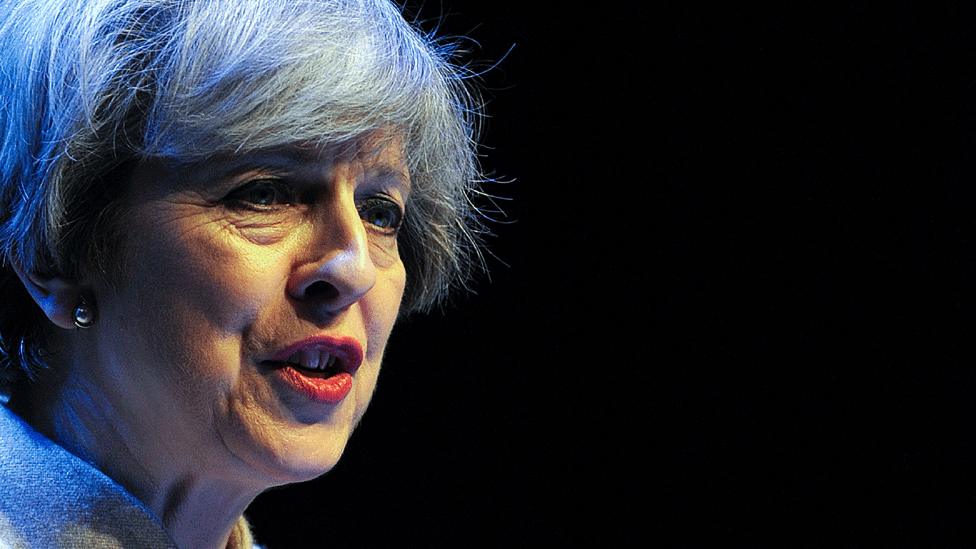
Prime Minister Theresa May has refused to be drawn on whether or not she would give permission for a second referendum to be held
Around of third of those people who voted Yes to independence in 2014 also voted to leave the EU. Making another referendum all about EU membership would risk alienating many of the SNP's core supporters.
Jim Sillars, a former SNP deputy leader, says: "I could not vote Yes if on the ballot paper it said we wish the Scottish state to be a member of the European Union.
"And I'm not alone in that; there's something like 350,000 to 400,000 of people like me who voted to come out of the EU and under no circumstances would vote to go back in."
The SNP are already preparing for the possibility of another referendum.
They have experts working hard on formulating a new economic case for independence, considering key questions such as what currency an independent Scotland might use and how they would cope with the sharp fall in the price of oil.
Other Yes supporting campaign groups have already started fundraising.
But calling another referendum would still be a gamble, and the consequences of defeat could be disastrous for Nicola Sturgeon.
Personal cost
To lose two referendums in quick succession could set back the cause of Scottish independence for at least a generation.
And there could be a high personal cost. Both Alex Salmond and David Cameron resigned immediately after losing referendums. There would be an expectation that Nicola Sturgeon would have to do the same.
But still, every time the first minster mentions the possibility of another vote she makes it seem increasingly likely.
Nicola McEwen, professor of politics at Edinburgh University, believes Ms Sturgeon may now find it hard to justify not calling another referendum.
She says: "In one sense she may have talked herself into the position of almost having to commit to a referendum even in the absence of majority support.
Ms Sturgeon still says that if the UK government is prepared to compromise on the terms of Scotland's exit from the EU then another independence referendum can be avoided. But she warns that time is running is out to reach some kind of agreement.
She wrote this week: "If an independence referendum does arise, it will not be down to bad faith on the part of the Scottish government, but to sheer intransigence on the part of the UK government."
Sarah will be examining the SNP's possible strategy for a second referendum on BBC Radio 4's Analysis programme at 20:30 on Monday 6 March.
- Published3 March 2017
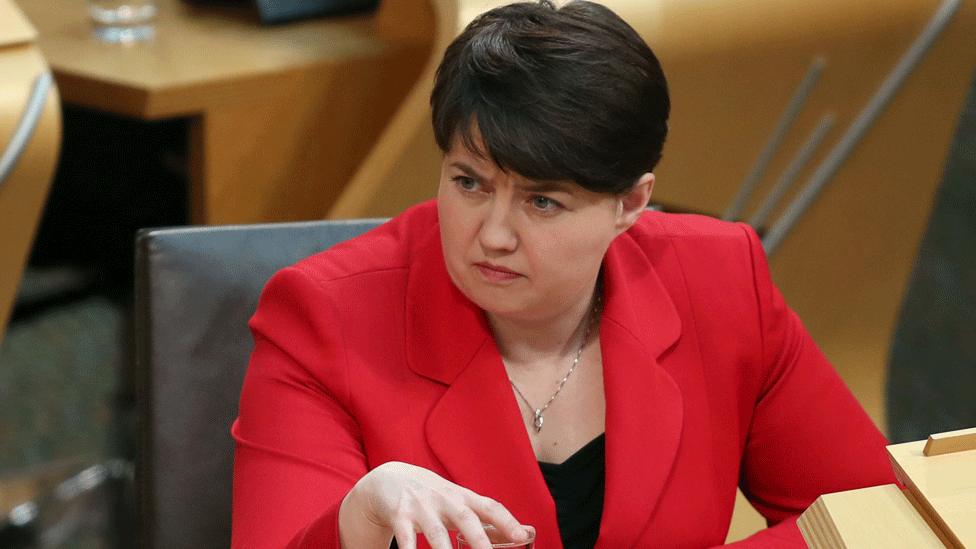
- Published3 March 2017
